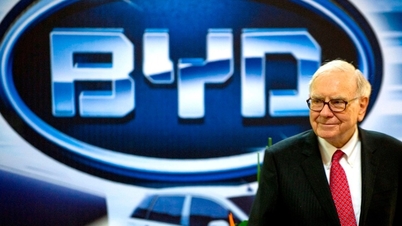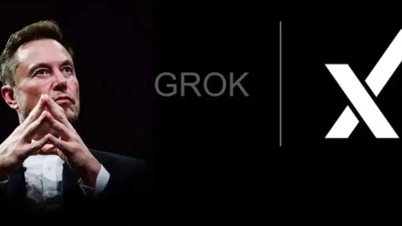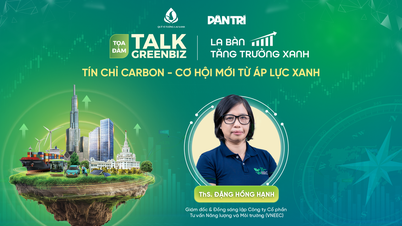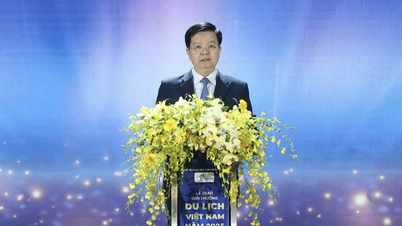2025 seems to be one of the most paradoxical years for Tesla and its brilliant yet controversial CEO, Elon Musk.
At the same time, the company offered a potential trillion-dollar compensation package—an unthinkable sum in corporate history—to keep Musk. But at the same time, the foundation of Tesla’s greatness, its electric vehicle (EV) business, is showing the most severe signs of fraying.
The big question is not only for investors, but for the global market: Is Elon Musk's path to becoming the first trillionaire threatened by the empire he built?
The Empire is in turmoil
Tesla has long been the symbol, the benchmark for the global electric vehicle revolution. But that monopoly is rapidly eroding. Recent data paints a worrying picture. In its home turf of the US, where Tesla once commanded 80% of the market, that figure plummeted to just 38% in August.
The downside is that this decline isn’t due to American consumers turning away from electric vehicles. On the contrary, the EV market in the US is still booming, reaching a record 9.9% of all new car sales. A total of 146,332 EVs were delivered to customers in August, an all-time high. This points to a bitter truth for Tesla: it is losing market share to its competitors.
The situation in international markets is also not encouraging. Europe, a key market, saw Tesla registrations fall alarmingly in August: France was down 47.7%, Sweden was down 84%, Denmark was down 42%, and the Netherlands lost half its number. Although there were glimmers of hope in Norway and Spain, the overall trend shows that Tesla’s brand appeal is being seriously tested in mature markets.
Tesla’s car sales have barely grown over the past 18 months. For a company that expects 90% of its revenue and 94% of its gross profit by 2024 to come from selling cars, that’s a red flag. The stock, while recovering since April, is still down more than 11% year-to-date. Elon Musk’s money machine is clearly running below capacity.

Tesla is struggling to gain market share even as global electric vehicle sales surge (Photo: Getty).
The Game of Optimus
Elon Musk seems unfazed by the storms hitting his core business. Instead, he is envisioning an even more ambitious future, one in which electric vehicles are just one piece. His recently announced “Master Plan 4” has sent shockwaves through the tech and investment world.
Unlike previous versions that focused on a “green revolution,” this plan aims for a more abstract concept: “Sustainable prosperity for all.” And the vehicle to realize that vision is not the Model 3 or Model Y, but a humanoid robot named Optimus.
Musk has not hesitated to declare that Optimus could account for up to 80% of Tesla’s value in the future. This is a bold strategic shift, repositioning Tesla from an auto company to an AI and robotics giant. This move implicitly admits that the electric car game is no longer capable of maintaining the miraculous growth rate as before.
Tesla needs a new playground, a new story compelling enough to keep investors, and Optimus is the answer.
The battle to keep a king
It was in the context of the shaky electric car empire and the vision shifting to robotics that Tesla's board of directors made an unprecedented decision: proposing a performance bonus package worth up to $1,000 billion for Elon Musk.
If approved, it would be the largest compensation package in corporate history, nearly equal to Tesla’s current market capitalization. The plan does not pay Musk a salary or cash bonus. Instead, the entire reward is tied to seemingly impossible goals over the next decade, including increasing Tesla’s market capitalization to $7.5 trillion (nearly eight times its current value), selling 12 million more electric vehicles, and achieving major milestones in AI, robotaxis, and Optimus robots.
The bonus package is divided into 12 stages, with the first milestone being to bring the company's market capitalization to $2,000 billion. If Musk fails to double Tesla's value in 10 years, he will receive nothing.
However, Tesla's proxy prospectus revealed a shocking reason behind the $1 trillion bonus package: "The majority of Mr. Musk's wealth now comes from companies other than Tesla, and he has more attractive options than ever."
Here's a candid admission: Tesla is no longer the center of Elon Musk's universe. The numbers show the shift.
Musk only owns 13% of Tesla shares, worth about $140 billion. Meanwhile, SpaceX is the “golden goose”: he owns 42% of shares, equivalent to about $170 billion if the company reaches a valuation of $400 billion. Not stopping there, Musk also owns more than 50% of xAI shares. If this artificial intelligence startup reaches the $200 billion valuation mark as predicted, the value of his ownership will exceed $100 billion.
Musk’s combined stakes in SpaceX and xAI alone (around $270 billion) are nearly double the value of his Tesla stake, and that doesn’t include companies like Neuralink. Clearly, Musk’s wealth has shifted to private companies—which are free from public shareholder oversight and are growing at breakneck speeds.
Tesla's prospectus makes it clear that this massive bonus package is necessary to prevent Musk from "prioritizing other projects." In other words, this isn't just a compensation package, but a "retention fee" of unprecedented scale, a desperate attempt to ensure Tesla remains top of mind for the CEO.
Tesla's battle is now more complex than ever: not only against traditional automakers, but also competing for Musk's own attention in the ambitious "galaxy" he created.
The trillion-dollar gamble is therefore not simply a bonus package, but a vital question: can Tesla be fast enough, attractive enough to keep Musk at the center of its universe before SpaceX and xAI sweep him away?
Source: https://dantri.com.vn/kinh-doanh/chuyen-o-tesla-1000-ty-usd-co-the-giu-chan-elon-musk-20250912090154240.htm



![[Photo] Soldiers guard the fire and protect the forest](https://vphoto.vietnam.vn/thumb/1200x675/vietnam/resource/IMAGE/2025/9/27/7cab6a2afcf543558a98f4d87e9aaf95)































![[Photo] Prime Minister Pham Minh Chinh attends the 1st Hai Phong City Party Congress](https://vphoto.vietnam.vn/thumb/1200x675/vietnam/resource/IMAGE/2025/9/27/676f179ddf8c4b4c84b4cfc8f28a9550)



































































Comment (0)